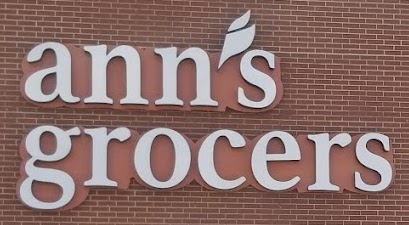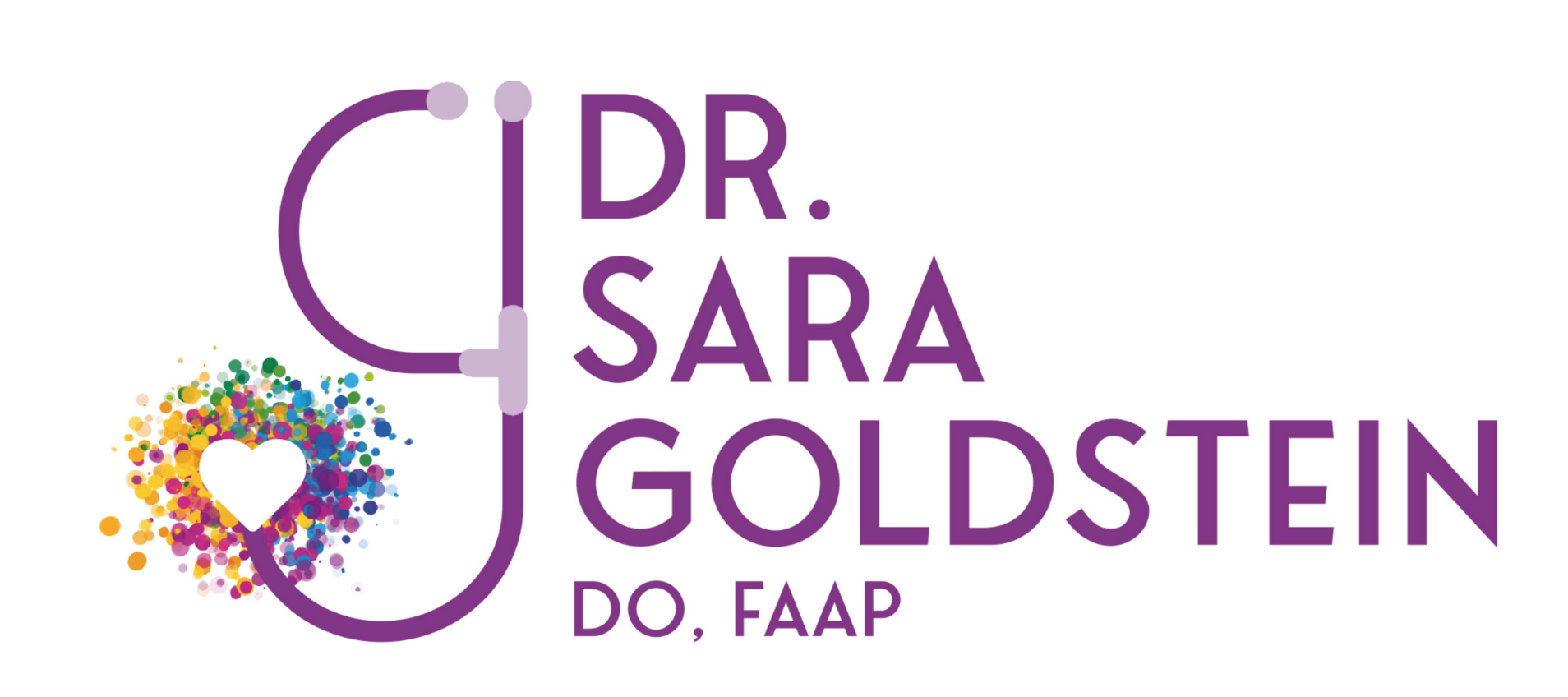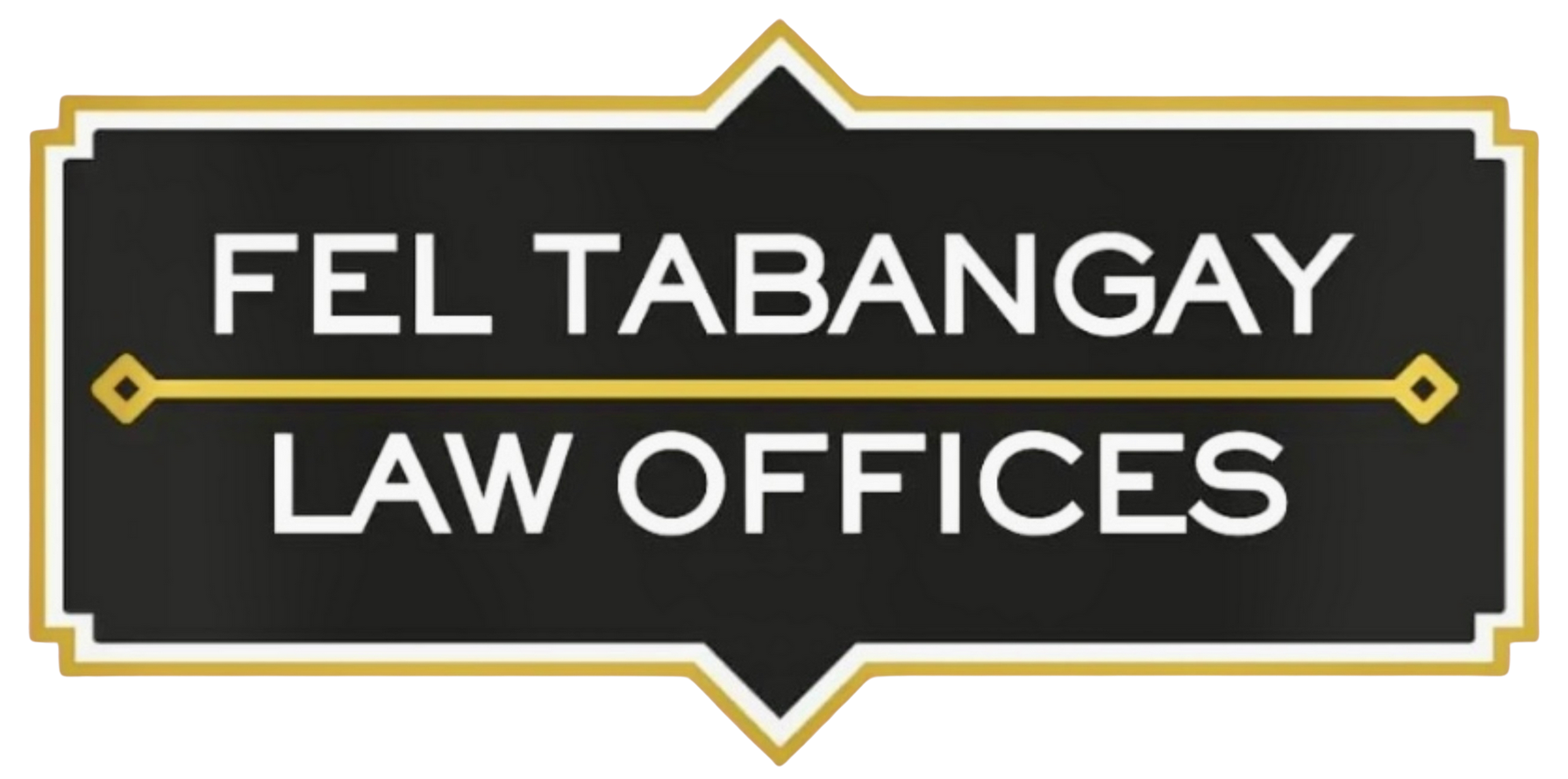A Million-and-One FAQs for New Band Families
Whether you are an established band parent or a "new parent" coming in this year, here are about a million-and-one questions you might have! This page is maintained by parent members of the Elkins Band Booster Club, so is not "official policy." For serious questions, or a statement of that "official" policy, please contact the band directors, who are happy to answer any questions you have. In addition, to get a live, real-time picture of what's going on, be sure to check the Elkins Band website.
Regardless, we are thrilled you are here--we're a family, and we're committed to welcoming you and your student, and supporting you! TOGETHER is how we offer positive experiences to all our students!
The Elkins High School Band and Guard program is made up of approximately 200 students.
The band program has two seasons: marching and concert. Marching season starts with May Marching Camp and includes summer camps, football games and competitions in the fall through November. Concert season starts in the fall with the All-State audition process that includes region and area auditions. There is also a winter concert in December. In the spring, there is Solo & Ensemble, Pre-UIL and UIL competitions, and a spring concert.
Our marching band, concert bands, jazz band, percussion ensemble, and color guard have received many prestigious awards due to the dedication and hard work of the students and our directors over the last several decades. These include being named Mark of Excellence ensembles and numerous UIL Sweepstakes Awards, which recognize bands with Superior ratings in performances and sight-reading contests. The band also made it to the Texas UIL State Marching Band Championships, while numerous students have earned spots in All-State bands at TMEA.
The band’s motto is “Excellence is in the Details.” Our commitment is to help your child develop life skills through the art of music, including leadership, discipline, citizenship, and responsibility. Thank you for letting us share in the growth of your child!
Mr. Chen, Director of Bands, Mr. Dial, Assoc. Dir./Percussion, and Ms. J, Color Guard Instructor.
Kroger Rewards - https://www.kroger.com/account/communityrewards/ - Search for Elkins Band and Elite Booster Club. Organization number BA516.
Family Sponsorship - Become a family sponsor and get a number of perks throughout the year, including reserved seats at concerts and your name on the travel band banner. More details on the Elkins Booster website.
Corporate sponsorship - Do you own a company or your company supports local schools? Become a corporate sponsor! More details on the Elkins Booster website.
Corporate matches - The Elkins Band Booster Club is a 501(c)(3) nonprofit organization, so when you make a personal donation, your company can match it! Tax EIN: 11-3754323Students enrolled in band class are placed into one of four different concert bands, which meet during the school day as three different classes. Students with the most experience and technical skill are placed in the Wind Ensemble, while students with the least experience are placed in the Cadet Band.
Jazz Band is an elective classes for students interested in Jazz performance. Auditions for placement into these groups occur in the Spring, and all middle school band directors are provided detailed information on how students at their schools (if attending EHS) can audition.
Ensemble placement is decided by auditions that occur during the spring before the next school year begins. Students are assigned to a band/ensemble based on skill level and experience by the band directors and must elect the appropriate class when the submit their schedule request for the following year.
Sections are groups of players with common/similar instruments. The Elkins Band sections are: Flutes, Clarinets, Saxophones/Bass Clarinets, Trumpets, Mellophones, Trombones, Baritones, Tubas, Percussion, and Color Guard..
Each section has one or more section leaders. During marching season, these groups will both rehearse with the full band and in sectionals. During the winter concert season, sections rehearse in class and then weekly after school.
The directors choose selections from a wide range of musical literature to use as source music. This is sent to professional band composers to combine into a unique musical setting. The marching forms, also called drill, (the patterns and shapes formed by the band, and the paths by which individual band members move to form these shapes) are also created by professionals to match and augment the full musical setting..
The Elkins Band Booster Club provides funds each year to cover the costs of this work. While it is possible to use music and marching composed for other bands in previous years, and top bands often commission new and unique music and marching tailored to their available instruments and marchers every year.
The full marching show is about 8 minutes long (see questions in "Band Performances/Competitions for details on rules/judging, including details of timing), and generally consists of ~4 identifiable sections, or movements. Often the show is learned section-by-section, but otherwise these "movements" are just like movements in an orchestral work--parts of the whole.
To contribute to the overall effect of the band's performance, set pieces and or props are used on the field. Sets and props are pieces of scenery or accessories just like would be used in a play or musical on stage, and may be things that move, are climbed on, or are carried by band members..
Generally, set and prop design is completed by the show designer (see "Where does the marching show music come from?"), and are entirely built by our Field Crew. Sets and props are loaded onto, driven, unloaded, and brought onto the field by the Field Crew as well.
We're always looking for more Field Crew members, so if you'd like to help build or transport sets and props, or to have a chance to be on the sideline down on the field while the students perform, please contact a board member.
Marching season starts with band camp in mid-July and ends with the UIL State Championship, which is held each year in November.
The band website (www.elkinsband.org) hosts a calendar that can be synced with your phone, and a detailed breakdown of the current week's schedule is posted on the band’s Band app page every Sunday evening.
No! The different sections have a range of overlapping and individual rehearsals. During marching season these generally occur after school. This is in addition to "camps" (all day rehearsals) during school breaks..
The Color Guard and Percussion section often have separate rehearsals, and each instrumental section has rehearsal with other instrumentalists and their own sections. Contact your section leader and/or see the band calendar at www.elkinsband.org for more details!
Yes! It is critical that every student attend every rehearsal and competition! Mr. Chen can approve requests for absences, but generally only does so for illness or family emergencies..
If you have concerns or questions, please contact Mr. Chen directly!
It is not advised to plan a vacation during marching season. If you have a conflict, please contact Mr. Chen immediately.
Usually the rehearsal is moved indoors. During a game, they may have delay, but often we are in the stands in the rain. We do distribute ponchos for students at games and competitions. We also make every effort to keep more delicate instruments from getting wet. It also depends on the severity of the rain. If there is light rain with no thunder or lightning, students continue to work outside. It is advised to check the weather before rehearsal to decide whether to bring a raincoat or poncho. If there is lightning, thunder, and/or heavy rain, students will work inside, usually in the cafeteria or band room. As noted elsewhere, while every effort is made to protect instruments, they can get wet and/or suffer bumps and bruises, so it is highly recommended to march with a less expensive instrument.
Check the calendar on the website (www.elkinsband.org) for up-to-date information.
During marching season, rehearsals are typically a few days per week.
Students should plan to arrive at least 15 minutes before rehearsal starts..
Rehearsals start with a warmup routine that students learn at mini camps in the Spring. Warmups include a light jog, stretches, cardio, body (dance-like movements used to add effect while marching), and marching warmup routines. After warmups, sections typically split up (usually split between brass, woodwinds, and percussion) to work on either music, choreography, or drill (marching steps and patterns).
Towards the end of rehearsal, the whole band will come together and work on drill. This usually includes working on different sets (small segments of the show) and doing a full run of the portion of the show learned to date at the end of rehearsal..
Parents and families are encouraged to arrive for pick-up early and watch these run-throughs at the end of rehearsal--it's a great opportunity to meet other parents, get a sense of the work the students do, and show our pride and appreciation of their efforts!... It's also cool to see/hear the show up close as they polish it!
Typically, once the school sets the orientation schedules Mr. Chen will identify a specific orientation for band students to attend. If all band students attend this orientation it minimizes disruption to rehearsals.
At May Marching Camp, students learn the body (sets of dance-like movements added to marching to enhance the visual effect of the show) and cardio warmups that are used at every rehearsal during the marching season..
At Summer Band Camp, students learn marching fundamentals (how to achieve consistent steps and appearance while marching, how to march in various directions, make turns, and vary step size, all as part of a coherent group), show music, drill (the patterns of marching that form shapes on the field), and choreography (the body movements that enhance visual effect). The 1st movement (see "What is a movement?") of the show is the main focus of Band Camp, and the band will performs this portion of the show at the Parent Performance on the last day of Band Camp.
Students learn and rehearse the show music at Camps and during Band Class. Students work with band directors and section leaders to learn and rehearse music..
All music for the show must be fully memorized.
While students learn drill for the 1st movement and music for the whole show at Band Camp, refinements and rehearsal of these parts continues throughout the season. Drill for the 2nd, 3rd, and 4th movements is then added incrementally as the season progresses, allowing each section to be focused on individually for a number of weeks. The band generally has learned the full show by the first or second Saturday competition, and the remaining weeks of the season are spent perfecting the show.
Students should bring their instrument, music, sunscreen, water jug, and comfortable shoes and clothing. We work outside on the Band Lot (parking lot behind the school closest to the Band Hall).
Rehearsals are physical, and it can be quite hot, so all students should wear deodorant. A hat that shades the face and neck can also be useful. Sunscreen should be applied before arrival, and reapplied throughout rehearsal, as appropriate. Students with medical needs or concerns must contact Mr. Chen before summer band camp.
At least 15 minutes before the scheduled start time, as students need to be ready to go at the scheduled time. It is important to note that if a rehearsal ends at a certain time, that is when students stop rehearsing; NOT when students will be leaving. Mr. Chen, drum majors, section leaders, etc., typically give important announcements at the end of each rehearsal that take about 15-20 minutes, and students must gather their things, take in equipment, and get the parking lot back to its normal state..
We encourage all parents and guardians to arrive early for pick-up and walk over to the band lot (practice area) to see and hear the day's final run-through and to meet other parents and families!
Students mainly rehearse in the band lot. Please don’t not park in this area, and be careful when driving through this area.
Students should be dropped off and picked up in the parking lot, located right next to the band lot. This is to ensure the students' safety.
After school hours students and parents/guardians can park. In fact, we encourage parents and guardians to arrive early for pick-up, leave your car, and come over to the band lot to see and hear the final run-through of the day. It's a great way to see the work students are putting in up close, and to meet other parents and families!
The marching band performs at every football game during halftime..
Through September and October the band performs at ~3-4 band competitions which are held in surrounding areas on Saturdays..
Concert bands perform a number of concerts in the winter and spring.
Students are generally required to report to the band room to prepare for a football game right after school. There is generally a brief rehearsal in the band lot, and then the students will be served their game day meal. After that, they change into their uniform, board the bus, and head to the stadium. Students remain in the stands during the first half, making their way to the sideline as the first half ends. They perform the show on the field, then return to their section in the stands..
After the game, the students help load all the equipment back on the trucks, get on the bus, and go back to school. If your child is in percussion or loading crew, they will unload the equipment. All students will change our of their uniforms and filter out of the band room door to leave..
As with all band performances, a detailed schedule is provided to the students listing all necessary report times.
Parents and families are strongly encouraged to attend football games!! We sit behind the band section. Wear your Elkins Band gear to support the band. Parents and family members do have to buy tickets, which are available online at GoFan. Chaperones who ride the bus do not have to pay for tickets. Come out and help us at half-time!
Prelims are the first (preliminary) round of performances at a competition. Bands are judged within their class and scored accordingly (see below). The prelims score determines the bands placement in finals competition, during which finalist bands perform a second time. The top scoring bands from prelims, regardless of class of competition, advance to the finals round. Scores from a band's finals performance (the second of the day) determine the Grand Champion (overall competition winner).
Yes! Anywhere between 10 and 20 (or more) bands will gather for a competition. They are initially grouped based on the size of the school (1A to 6A). All bands perform once in a preliminary round ("prelims"), and are judged by at least three judges, some near the field, and some in the press box. Bands are scored on musical performance as an ensemble and as individuals, on visual performance as an ensemble and individuals, and on the general (overall) effect of the music and visuals. The Color Guard and Drum Line may be scored separately as well. The bands ranked within their class and win awards based on their rank. The top 10-12 bands overall, regardless of class, are selected to perform again in a Final round ("finals"). The finalist bands are scored again on their second performance, and ranked by overall score, with the top scoring band (in Finals) named "Grand Champion".
Band competitions happen on Saturdays in September and October and last all day, starting with an early morning rehearsal, and concluding with arrival back at school, generally around midnight or later. The band usually attends 4-5 competitions.
The band directors will circulate a detailed schedule for every competition. Generally, though, students start the day with an early morning rehearsal at school followed by a meal. They will board the buses with their uniforms. Once we get to the destination, they will unload equipment. Parents who are chaperoning will ride the bus with students. If you are helping move equipment, you will meet us in the designated parking lot. After the competition, we load up equipment and head to stands to hear the results. If we make it to finals, we do this all over again. If we don’t, we load the buses and go back to school. Note, these are typically long days.
The band is transported via buses. The band usually takes five buses to competitions. Bus placements are assigned based on student signups, where students can request a bus. Parents are not permitted to ride with band students on the bus. Several chaperones are assigned to each bus to supervise the students.
Yes, parents, families, and friends attend band competitions! You are STRONGLY encouraged to do so to support the band and share the experience with other band families! Competition attendees must provide their own transportation and tickets.
Expect to be impressed, a bit overwhelmed, and to have a great time! The schedule for attendees is somewhat variable, based on (1) where the competition is, and details of how the competition site is arranged, (2) when the band is scheduled to perform in prelims, and if you intend to see the prelim performance, (3) if the band make finals, what finals time they draw, and if you intend to see this performance. Typical competitions that the band participates in are about 20 mins - 1 hour away. Parking is usually on-site. It will take some time to park and walk to the stadium. Once at the stadium you will need to buy tickets if you haven’t already done so online. Usually the directors provide the ticket link. You should bring both cash and a credit card, including enough cash to buy food at the concession stand, if desired. Generally parking is free. Be sure to arrive enough ahead of Elkins’ performance so you can move into place at least a band or two early. THAT SAID, you are encouraged to arrive MULTIPLE Bands ahead, both to ensure you get seats, and so that you can get a sense of what other bands are doing. Each band has a 15-minute window in which to perform, so you will be able to see around 4 bands per hour. There is a break after the final band for the Drum Major Retreat, after which the announcement of which bands make it into the finals is made. Yes, you have to pay for tickets to attend.
We have a semi trailer, box truck, and small trailer. The percussion and loading crew handle the loading and unloading with some assistance from parent volunteers. We let the students take the lead on loading and unloading and only step in when asked.
We have the Band App, where you can communicate with other parents. All sections also have a section liaison, with whom you can get to know and ask questions.
The Band App is an app that allows people to sign up to receive messages from the band directors. There are several Band groups for, e.g., the entire band, parent volunteers, Percussion, and Color Guard. Everyone (parents, guardians, and students) are encouraged to join their appropriate Band groups. To do so, download the app on your phone, and open the appropriate link. All links can be found at the bottom of every booster club weekly update.
The band banquet happens at the end of the school year to celebrate the students' hard work and success throughout the marching and concert seasons. All students and their families are encouraged to attend! Tickets and details will be available in early Spring each year.
The booster update is rundown sent to parents and students every week by the Booster Club. It is one of the single most important ways to keep up-to-date on band information. It includes important dates, news, and other happenings for the upcoming weeks. Important fundraiser information and announcements are included. Join the entire band Band app to make sure you are getting these updates.
The band banquet happens at the end of the school year to celebrate the students' hard work and success throughout the marching and concert seasons. All marchers, percussion, and guard members and their families are encourged to attend! Tickets and details will be available in early Spring each year.
The end of season party occurs at the end of the marching season (usually the Saturday after State). It is a celebration for students, and is generally held at Lafayette. More information will be available as the end of the marching season approaches.
Marching band uniforms consist of a hat (shako), shako wrap, "bibbers,” a uniform show shirt, dry-fit shorts, black socks, marching shoes, gloves, and a shirt designated by the directors (this is often the show T-shirt). Students are issued the shako, shako wrap, bibbers (the overall-looking pants), show T-shirt, and uniform show shirt. Students must purchase black socks, shoes, gloves, and any additional shirts and shorts. Color Guard members have their own uniforms specifically designed to augment the show. They also purchase guard supplies, including a backpack, jacket, shoes, body tight, and gloves.
Shakos, shako wraps, uniform show shirts, Color Guard uniforms, and bibbers are owned by the band. Band uniforms can cost anywhere between $100 to $300 each. Color Guard uniforms are typically $250-$500 each.
Yes and no! Marchers and Color Guard members are given new uniform show shirts every year that are specifically designed to match the show theme. The rest of the uniform is the same year after year.
The marching uniforms can be taken home and cleaned. Care instructions are distributed when it is time for cleaning, which is usually a few times during the marching season. For concert uniforms, dresses can be washed in the washing machine. The tuxedos must be dry cleaned. IT IS STUDENTS’ RESPONSIBILITY TO WASH THEIR DRI-FIT SHIRT AND SHORTS AFTER EVERY USE. Every other member of the band appreciates students’ diligence in keeping their uniform fresh.
Students are required to wear specific shoes with their marching or Color Guard uniform. Marchers wear shoes called Vipers that are specifically manufactured for marching bands. Color Guard members generally wear a certain type of dance shoe (details will be provided during the summer for all Color Guard members). Students must purchase their own shoes. This usually takes place on Registration Day. From time-to-time, gently used shoes are available from previous marchers. In addition, marchers are required to wear tall black socks. No logos, designs, or other markings may be visible on the socks.
Contact the student uniform captain with any questions or concerns about uniforms!
For marchers at all marching performances all hair must be worn up, and may not hang down from beneath the marching hat. This applies to EVERY MARCHER. Hair may not hang over the ears. Once "up", hair MUST fit comfortably with the hat, and may not disrupt or interfere with correct placement of the hat on the student's head. If you have long hair, or hair that covers any part of your ears, put your hair in a bun on top of your head. Please note that you must have your hair fully ready BEFORE any call/report times. Color Guard directors will determine how Color Guard members wear their hair. Unlike marchers, hair is considered part of the costume, and is styled to enhance the visual effect of the Guard performance. Details on hair will be provided to Color Guard members well in advance of the Band's first public performance.
The band provides "Concert Uniforms,” which are either a dress or tuxedo.
The Elkins Band Booster Club, a 501(c)(3) nonprofit organization, includes volunteers who serve as officers and chairpersons for activities, functions, and fundraisers in support of the band and guard. Parents who pay band fees are voting members of the booster club. Each year, the booster club provides THOUSANDS of volunteer hours and more than $270,000 in direct financial support to make nearly everything the band does possible. We pay clinicians, purchase uniforms, show music, instruments, props, and sets. We provide food for students during camps, events, game days, and competitions. For overnight trips, organize housing for students. Booster club members work with students to maintain and clean uniforms, we serve as chaperones, we prepare and serve food, we build, we maintain, we transport, and we help place on the field props and sets, move instruments, organize and operate the band store, organize and arrange photographs of band students, and "get done" whatever the band staff needs.
The booster club is a vital part of the success of the Knights Band and an excellent opportunity for you to be involved in your child’s high school experience. Even if you don’t think so, your child enjoys having your support at games, competitions, and concerts.
Each week, especially in the fall, it takes between 50 and 60 parents to make our program go at any given time. Therefore, we need all parents to participate! We encourage you to take positions that align with their talents. interests, and skills. If you’re interested in serving on the board or volunteering for a specific position, please contact us! We look forward to having you as a Band Booster Volunteer!
Band class with the four primary directors, the marching show design, and a few other things. No additional staff, props, or other funds for marching and concert activities.
We’ve estimated that the per-student costs is around $2,000 each year. This includes $100 for the uniform show shirt, $200 for master classes with instrument- and skill-specific clinicians, $100 for meals on contest days, around $300 for show-related expenses, plus a host of other expenses. As you can see from looking at our band fees, we try to keep them as low as possible and bank on good fundraising efforts and sponsorships throughout the year to make up the difference.
The booster club raises money in two primary ways: band fees and various fundraising activities. We work to raise as much money as possible via fundraising activities to reduce the expected family contribution. Currently, we get about 40% the total required funds from band fees. The remaining funds (some $165,000) must be directly contributed by our families or fundraisers.
In terms of fundraisers, we aim to raise ~$50,000 in our annual donation drive, ~$5,000 via sponsorships, and ~$2,500 from spirit nights, and other small amounts from the Kroger grocery program, fan shirt sales, and company matches..
Much of the money brought in are considered pass-throughs, which means the booster club is just a means of collecting the money that will be paid out to vendors. This includes shoes, gloves, guard supplies, percussion equipment, region band fees, jazz band fees, solo and ensemble fees, dri-fit shirt and shorts, and other supplies. Every penny collected and raised by the booster club goes directly to supporting band activities.
"Spirit Nights" are when a business decides to donate part of their proceeds from sales to the band (i.e. band families eat at Chick-fil-A on a particular night and earn cash for the band). These are a great way to support both local businesses and the band.
The opportunities and experiences our students have as part of the band are only possible if we generate funds via fundraising. All our band families are busy, stressed, and bearing many burdens. We feel strongly that the benefit of band is worth our effort, though, and every band family is encouraged and expected to participate in all band fundraisers.
The band fees represents the amount of money per student that individual families are expected to provide to support the entire band. For the 2025-2026 academic year, band fees per student are $600 for wind and percussion players, and $800 for color guard. There will be another $800 for winter guard members assessed in January. This may be paid in a single payment, or over the course of several months. There are not discounts for having more than one child in the band program, however, the booster club can extend out payments beyond the payment plan if needed.
Failure to pay band fees increases our reliance on (and the effort required for) other fundraising. It may also inhibit your student’s ability to attend prom or get their diploma when they are a senior. We encourage every family to do what they can to help all our students have the most impactful and positive band experience possible. We also encourage, and expect, all families to actively support Elkins Band Booster Club fundraising activities!
While you cannot earn credit toward your band fees, we recognize that every family is in a different situation. The band has myriad volunteer needs above and beyond the band fees, and all band families are expected to share the burden, enabling all our students to have a positive and life-changing band experience! From time-to-time the band does have need of in-kind contributions. If you might be able to support the band in this way, please contact the booster club board!
Yes, we offer the ability to purchase game day meals and meals on days when there are extra-long rehearsals. On competition days, students are provided a combination of meals, for example, breakfast and lunch with them needing to bring money for the concession stands at dinner. It depends on what time the competition performances are as to what meals will be provided. If you choose not to purchase game day meals or those rehearsal meals, you are responsible for providing dinner for your child. Without that sustenance, they will be unable to participate in the marching show. We do not permit eating in uniforms, so your child is unable to eat at games.
At registration day, we ask all parents to provide food allergies and dietary restrictions. If you don’t tell us, we won’t know! It would be great if you also provided us with some meal ideas, especially if your child is vegan. We serve a lot of breakfasts that have eggs and meat, and we try our best to be aware of what items are in certain foods. By giving us some ideas, we can put our best food foot forward for our vegan friends. Typically, nut products are never provided or brought on trips. Allergies should be reported on our required medical forms.
WATER IS CRITICAL FOR REHEARSALS! Every student MUST bring their own jug of water. We ask that students fill up their water jugs with ice and water at home before coming to school on rehearsal and game days. Chaperones will have coolers full of ice and water available, but every student should have their own jug for rehearsals. Chaperones also have emergency snacks if a child has low blood sugar or is feeling sick.
For competitions, food and water are provided, though students can bring their own snacks and water. Chaperones typically pass out snacks on the way back from games and competitions.
Each year, we ask families to donate one case of 16.9-ounce waters, one case of mini waters, and a box of Capri-Suns/lemonade pouches/Minute Maid juice boxes, which are passed out with game day meals. Our students also like tea, so any donation of jugs of sweet tea or lemonade that don’t have to be refrigerated is a treat for students.
We also for donations of snacks for those after-game bus rides. For example, Goldfish, Cheez-its, granola bars, chips, fruit snacks, cookies, snack-bags of popcorn, pretzels, Rice Crispy treats, Ritz bits with cheese, cheese crackers, NutriGrain bars
Please refrain from snacks with peanuts or any kind of nut.
The best ways to let us know you’d like to volunteer are to come to a board meeting, talk to a board member, or email our vice president. We need people with all skills and experiences, for example, carpentry, social media, web design, engineer, baking, organization, sewing, photography/video, event planning.
No problem! How much time can you commit? Summer evenings and weekends? Saturdays only? Evenings only? Available during the week? Or can you help from home, like making calls or emailing?
Here are the areas where we need volunteers:
Summer - We meet at school on evenings/Saturdays during rehearsals - usually about 2 hours in the evenings and 4 hours on Saturdays. Starts in May, June, or July, depending on the project. We ask volunteers during this time to help with prop engineering/construction; carpenter/engineering/mechanics to fix props and electronics, or fix instruments; with uniforms, like ironing, and hemming; and summer band activities, including assisting with band registration, hand out refreshments at band camp, and help at Summer Knights.
Booster Club committees - Committee chairs attend monthly booster meetings to give reports on committee activities. Meetings take place in the evenings in the band hall and are usually 1-2 hours. All of these can be done from home. Time commitment: 1 hour per week.
More hands-on committee opportunities - This committee chair requires going to school around once a week; regularly attend games, competitions, and other activities; or in contact with the color guard and percussion directors. You will also attend monthly booster club meetings. Time commitment: 1-2 hours per week, more for games and competitions.
Fall Opportunities - August through November - this is where we regularly need 50-60 volunteers, working in various capacities, at each football game and competition. Games are usually 3 hours, however, you don't have to go to the game - you can come just for half-time to help and see your student perform. Competitions are typically all day.
Spring Opportunities - December through May - we help with Region band activities, including providing food during those events, concerts, middle school activities, uniform measuring, Spring Trip, May Marching Camp, and plan the year-end banquet. Time commitment: 1 hour week.
We have lots of places. Here are some, but please tell us where you’d like to help if it is not listed:
Loading and unloading the equipment trailers.
Photography and Video
Move equipment on and off the field during games and competitions.
Communications
Volunteer Recruiting
Event Planning
Visual Art (ex. T-shirt design)
Fundraising - organizing, sales, etc.)
Uniforms - measuring, ironing, inspecting bags
Sewing (uniform repair and hemming pants)
Familiar with 501(c)3 paperwork, audits, writing grant requestsSponsorship, Events, Spirit Nights, Spirit Wear, Spring Trip Planning, Meal Distribution, Section Liaisons (Guard and Percussion are a little more involved and require working with those directors), Trailer and Props, Uniforms, Historian/Photographer.
Here are the Fall opportunities:
Pre-game - fill coolers, fill snack bags, move coolers outside to trailers. (3 p.m. on each game day or early on competition days. Takes about 30 minutes)
Transportation Crew – driving a truck/ small trailer or a box truck with instruments and props. We are looking for a group of people to trade off with driving for each event. (Hours for this vary - for example, be available starting at 3:30 p.m. on football game days. There may also be some performances during the week. Most Saturday competition needs begin at 9 a.m. We know more when marching season starts).
Field & Stadium Help (assist with escorting students during the game, filling up water jugs, picking up music flip folders during the halftime show (need 7-8 people typically), moving props and percussion instruments from the parking lot to the field for the halftime show and competition and then back to the trailers. (this is where we need the most help – usually 30-40 people – especially when we are at Mercer Stadium, because we take equipment up and down hills. Bonus, you get to watch the show from the field). **You don’t have to attend the game, just come for the 30-40 minutes just before and during halftime.**
Roadie Crew – help with loading and unloading equipment at games and competitions. (The students do most of the work, but we are there for back-up.)
Hand out meals before football games and competitions (for a typical game, students eat around 4 p.m. For competition days, there is usually a combination of breakfast, lunch, or dinner.)
Bus chaperone for games/ competitions (buses leave around 5 p.m.) – there are approximately 15 events from August-November. Usually two chaperones per bus. You will make sure the bus magnet goes on and off your bus and distribute snacks.(6-7 hours each game)
Game chaperone - escort students to and from the bathroom during games and competitions.
Half-time announcer – read band announcements during each football game. (1 hour per game)
Traffic monitors – direct traffic for parents picking up students after football games. You get to wear a fun vest and carry a flashlight! (2 hours per game)
Here are the Spring opportunities:
Band Banquet Committee – help with planning, decorations, section basket items; day-of help, including decorating, and handing out tickets and wristbands. (Most of your time will be day-of banquet - 2-3 hours for setting up and 1-2 hours for taking down)
Spring Trip Chaperone – Chaperone students going on the spring trip. The number of chaperones needed depends on the number of students going.
Help hand out meals at various events, including Region Band clinic, middle school night, and special events.
Become a corporate sponsor
SponsorOur Sponsors











